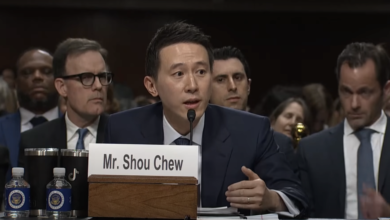Photo: B-52 bomber, the type that conducted a “patrol” over this Middle East this week
Secretary of State Anthony Blinken said on his first day of work that President Biden wishes to return to the Joint Comprehensive Plan of Action nuclear deal with Iran, but that it will be a “long road” before the U.S. comes back to the table. Blinken ridiculously put the onus on Iran to come back into compliance with the JCPOA even though it was the United States that trashed the deal by reimposing suffocating sanctions on Iran. Blinken and Biden’s position means more suffering and deaths for the people of Iran as U.S. economic warfare denies them access to food, medicine and other essentials.
The JCPOA, an agreement between many world powers that was codified into international law by the United Nations Security Council, resulted in desperately-needed sanctions relief for Iran and the easing up of geopolitical pressure against the country after it was signed by the Obama administration in 2015. The Trump administration re-instituted harsh sanctions that broke the U.S. end of the deal, to which Iran eventually responded with measured and foreseeable non-compliance. U.S. aggression continued, culminating in the cold-blooded drone murder of top Iranian military General Qasem Soleimani — an assassination that brought the region to the brink of devastating war early in 2020.
Many of Joe Biden’s flurry of executive orders in his first week in office were aimed squarely at undoing Trump-era domestic policies. The statement this week by Blinken may indicate that the administration may effectively pursue continuity in key areas of foreign policy. This appeared even more likely after a provocative “patrol mission” over the Middle East by U.S. bombers took place on Wednesday, a move that had taken place several times in the closing days of Trump’s presidency.
Iran’s Foreign Minister Mohammad Javad Zarif said in response that the U.S. government should consider spending its money on healthcare instead, and at the same asserted, “we don’t shy away from crushing aggressors.” Iran fired a precision ballistic missile strike at a U.S. military base illegally existing in Iraq in response to Soleimani’s murder, proving their armaments could evade U.S. anti-missile systems and easily hit U.S. targets. No deaths were reported in this carefully measured act of retaliation.
The Biden administration now demands that Iran return to full compliance with the terms of the JCPOA, dismantling again their nuclear capabilities, before the United States will discuss the possibility of lifting Trump’s sanctions. Biden has previously said that he would also seek to force Iran to halt its ballistic missile development and fundamentally alter its foreign policy in order for the U.S. to return to compliance, a poison pill that would surely be unacceptable to Iran.
Given that the United States unilaterally broke the agreement in the first place and that all of Iran’s steps away from the deal were in direct response to aggressions perpetrated by the Trump administration, it is understandable that Iran has called for full lifting of sanctions as proof that the new administration is serious about wanting to return to the JCPOA. Iran may also be dismayed that Blinken’s personal position on the deal has changed so much since 2018 when he tweeted a lengthy thread criticizing Trump’s move away from the consensus.
As Zarif stated, the ball is now in the U.S. court with regard to Iran. Biden and Blinken can immediately prove that they are interested in peace and diplomacy by ending sanctions, or they can continue to make unrealistic demands with the threat of war literally flying over the heads of Iran’s people as they suffer cruel sanctions during a global health pandemic.





